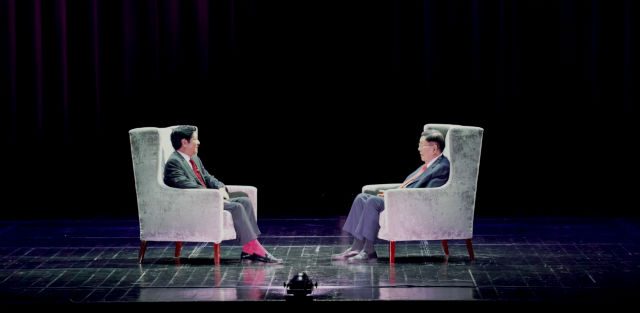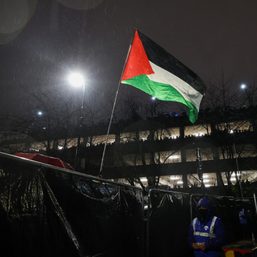SUMMARY
This is AI generated summarization, which may have errors. For context, always refer to the full article.

MANILA, Philippines – Ex-senator Ferdinand “Bongbong” Marcos Jr posted the first part of his interview with Juan Ponce Enrile on Thursday evening, September 20, the eve of the 46th anniversary of his father’s declaration of Martial Law.
The show JPE: A Witness to History is a two-part video interview of Enrile that can be seen on Bongbong’s social media accounts. The second video is set to be posted on Saturday, September 22.
Bongbong, the only son and namesake of the deposed dictator Ferdinand Marcos, said he invited his father’s former defense minister to talk about the decision-making process that led to Martial Law. (READ: Martial Law, the dark chapter in Philippine history)
Bongbong’s reason? To address the “different approach” of millennials when it comes to Martial Law, which historical and court records showed was marred by killings, torture, disappearances, media oppression, and corruption. (READ: #NeverAgain: Martial Law stories young people need to hear)
“We put this together really because of the mail that I have been receiving in my social media. And the millennials have a different approach, it seems, to the events of history, this history of your lifetime for that matter,” Bongbong told Enrile, the architect and implementer of Martial Law.
Enrile replied: “Little by little, the truth will come out. I am glad that you have asked me to join this conversation so that at least we can somehow correct the distortions of history.” (READ: Gone too soon: 7 youth leaders killed under Martial Law)
Forty-six years ago on September 21, 1972, Marcos signed Proclamation Number 1081, which put the entire Philippines under martial law. He went on national television on September 23, 1972, to announce the imposition of martial rule in the country. (READ: Marcos’ Martial Law orders)
Human rights abuses became rampant under Martial Law, with several critics of Marcos and his family imprisoned, tortured, or killed. Amnesty International said that from 1972 to 1981, when Marcos lifted Martial Law, about 70,000 people were imprisoned, 34,000 tortured, and 3,240 killed.
The Philippines suffered in billions of dollars worth of debt. From $8.2 billion in 1977, the country’s debt ballooned to $24.4 billion in 1982 – or within a period of just 5 years. (READ: Marcos years marked ‘golden age’ of PH economy? Look at the data)
The Marcoses also plundered the country’s coffers, with various estimates putting the amount between $5 billion to $10 billion.
Enrile is considered as the architect and implementer of Martial Law as Marcos’ defense minister. But after the 1986 snap elections, Enrile and then-Lieutenant General Fidel Ramos withdrew their support from Marcos. This was one of the key events that led to the EDSA People Power Revolution, the tumultuous episode which led to the ouster of Marcos.
Years later, however, Enrile said Marcos deserved to get a hero’s burial at the Libingan ng mga Bayani in 2016.
On Friday, various protest actions will be staged in key cities across the country to denounce Marcos’ declaration of Martial Law. – Rappler.com
Add a comment
How does this make you feel?





There are no comments yet. Add your comment to start the conversation.